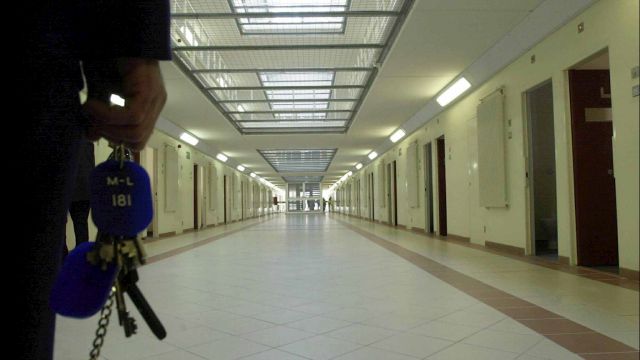A black prison officer racially abused by prisoners has failed in his race discrimination case against the Minister for Justice and the Irish Prison Service (IPS).
It follows the Labour Court dismissing an appeal by Peter Onyemekeihia against a 2017 ruling by an Equality Officer that Mr Onyemekeihia was not directly or indirectly discriminated against by the Minister for Justice or the IPS on the grounds of race.
Equality officer Orla Jones also found that Mr Onyemekeihia was not harassed or victimised by the Minister for Justice - or the IPS - under different sections of the Employment Equality Acts.
In evidence on behalf of the Nigerian born Mr Onyemekeihia before Ms Jones in 2016, it was alleged that the racist abuse comprised racial taunts and harassment which occured effectively on a daily basis, including. for example, being called by prisoners a “black b******d”, the 'N word', a “monkey”, “a black monkey” and being told to “open the f**king gate you f**king monkey”.
It was also alleged that prisoners sometimes threw bananas and peanuts at Mr Onyemekeihia, or told him to go home to the Congo.
In the Labour Court ruling after hearing four days of evidence across 2018 and 2021, Deputy Chairman Alan Haugh stated it was accepted that Mr Onyemekeihia - who commenced working for the IPS in 2008 - was the subject of racial abuse by prisoners.
Represented by the Irish Human Rights and Equality Commission (IHREC) in the case, Mr Onyemekeihia argued that the IPS had not taken sufficient steps to discourage the type of racist behaviour he experienced.
Complaints
Mr Onyemekeihia told the court the sanctions imposed on the prisoners in question following his complaints were either never implemented or only briefly implemented and then suspended.
However, in the court's findings, Mr Haugh stated the court was satisfied on the basis of evidence heard that the IPS "has consistently taken a robust approach" in dealing with allegations of racist behaviour by prisoners against officers – including Mr Onyemekeihia - and that the sanctions imposed under the IPS disciplinary regime “are meaningful and proportionate”.
Mr Haugh said the IPS has an active anti-harassment policy in place which is known to, and understood by, prisoners and officers.
As a result, Ms Haugh said the IPS can rely on the defence provided under Section 14A of the Employment Equality Act where an employer can show that it took reasonable practicable steps to prevent the discrimination and harassment taking place.
Mr Haugh concluded: “The Complainant’s appeal, therefore, fails.”
Anti-racism strategy
Mr Haugh found there is some merit in the observation of Counsel for Mr Onyemekeihia to the effect that the issues of racism and racial harassment may have not, to date, been given the level attention that they require by the IPS.
As a result, the Labour Court has directed that the IPS conduct a thorough review of its anti-racism strategy and policies having regard to examples of international best practice in this area in the prison systems of other similar jurisdictions.
Under cross-examination at the Labour Court, Mr Onyemekeihia accepted the vast majority of prisoners do not engage in racist abuse.
Mr Onyemekeihia submitted the sanctions imposed under the IPS disciplinary regime for racial abuse are too lenient and not always fully implemented.
He said he believed this give the impression to prisoners that it is okay to racially abuse a prison officer.
Witness of behalf of Mr Onyemekeihia, General Secretary of the Prison Officers’ Association (POA) John Clinton said, in his view, the sanction applied to prisoners who had committed acts of racial abuse against Mr Onyemekeihia were inadequate and an insufficient deterrent.
He said the sanction of a reduction in remission of sentence should have been applied, stating it would have a more meaningful impact than withdrawing a prisoner’s access to evening recreation.
However, now retired assistant governor at Mountjoy Paul Flynn told the Labour Court that a P19 sanction imposed on a prisoner could result in a prisoner losing privileges for up to 40 days.
Mr Flynn described this as having a significant impact on a prisoner and an individual prisoner’s record of P19s has downstream consequences where it can be taken into account by the Parole Board and the Probation Service.
Campus governor of Mountjoy from 2014 to 2018 Brian Murphy told the Labour Court that between 2,500-3,000 P19s were raised annually in Mountjoy at the commencement of his term as governor and this reduced to approximately 1,800 annually when the practice of slopping out was discontinued.







